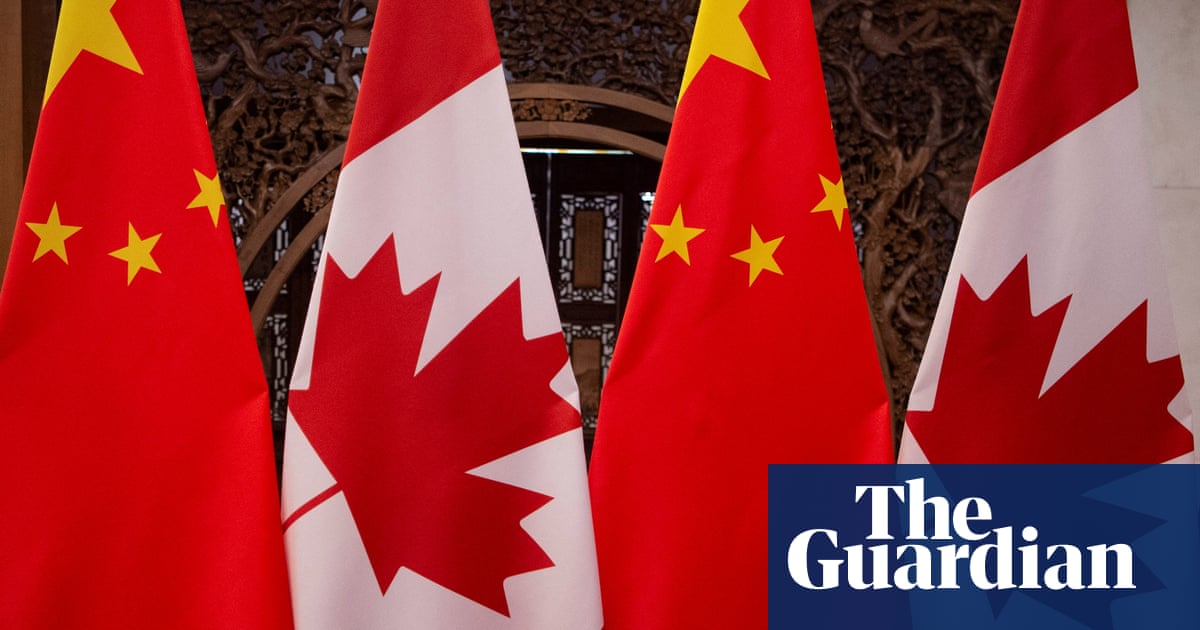
Canada’s spy agency is under pressure after Justin Trudeau and his closest advisers say they were never made aware of a report that Beijing “clandestinely and deceptively” interfered in both the 2019 and 2021 federal elections.
Canada is in the midst of a contentious public inquiry “examining and assessing” foreign interference by China, Russia, and other foreign states and non-state actors, and this week the prime minister, Justin Trudeau, testified under oath about the steps his government took to respond to the threat of meddling. In his appearance, which lasted nearly four hours, Trudeau insisted that despite the efforts from hostile states, previous federal elections “held in their integrity”.
“[The elections] were decided by Canadians,” Trudeau said.
But he cast doubt on the reliability of information collected by the Canadian Security Intelligence Service (CSIS), which has underpinned media reporting about Beijing’s alleged meddling efforts. Trudeau also said that information in a 2023 briefing note – which said that China’s interference efforts were “pragmatic in nature” and focused primarily in supporting those with a Beijing stance or were “neutral” on issues of interest to the Chinese government – was never relayed to him or his staff.
His remarks contrasted with testimony from the CSIS director, David Vigneault, who told the commission that the warnings in the agency’s reports – including advice that the government “take decisive action and impose consequences on perpetrators” – were passed on to the prime minister’s inner circle.
The CSIS also warned that foreign interference in Canada will persist until it “is viewed as an existential threat” to the country’s democracy and governments respond “forcefully”.
But neither key staffers, nor the prime minister himself, recalled those warnings.
Those discrepancies prompted the head of the CSIS to be recalled to testify once again before the commission.
On Friday, Vigneault told commission lawyers that while he might not have mentioned certain points on briefing notes, he conveyed those warnings to the government on other occasions, including the idea that hostile nations view election meddling as a “low risk, high reward” undertaking.
Vigneault added that his agency’s method for briefing officials was “not just one method and one person” to ensure key figures were brought up to speed.
Speaking to reporters after his testimony, the prime minister deepened the rift between his government and the spy agency over the accuracy of CSIS reports by suggesting “no government, no leader” should “simply be a passive receiver” of information and intelligence.
“We have a role to play in asking questions, on thinking critically … encouraging further work on questioning sources and pulling out contradictions,” he said. “That actually is part and parcel of the work that we all need to do to make sure that everything is done to keep Canadians safe.”
after newsletter promotion
Among the issues was reports that the CSIS had warned the Liberal party about possible Chinese interference in the nomination of Han Dong in Toronto.
“I didn’t feel there was sufficient or sufficiently credible information that would justify this very significant step as to remove a candidate,” Trudeau said.
The prime minister himself has come under fire from political opponents after telling the commission he didn’t read briefing notes, instead preferring to receive key information in person or over a secure line from his national security adviser or top intelligence officials, including Vigneault.
“When there is actually a risk of manipulation by hostile and malicious actors like, say, a communist regime in Beijing, he can’t even take the responsibility of reading his briefing notes,” said the Conservative leader, Pierre Poilievre.
Beijing has previously denied all allegations of meddling in Canadian affairs and a spokesperson for the embassy said Trudeau had “slandered” China during the inquiry hearing.
The commission, overseen by Quebec appeals court judge Marie-Josée Hogue, will complete an initial report by 3 May and deliver its final report by the end of 2024.
Source: theguardian.com


















